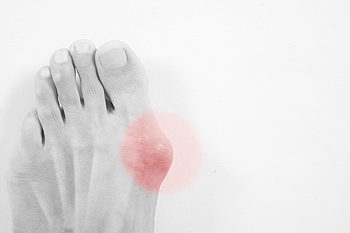
A bunion, characterized by a bony protrusion at the base of the big toe, can significantly impact everyday activities, introducing challenges and discomfort into routine tasks. Walking, a fundamental activity, becomes hindered as the misalignment of the big toe alters the foot's natural biomechanics, leading to pain and difficulty finding suitable footwear. The act of standing or even simple weight-bearing activities may provoke increased pressure on the bunion, intensifying discomfort. Selecting appropriate shoes becomes a continual challenge, as the bony prominence may not comfortably fit into regular footwear, exacerbating the interference with daily life. Activities that involve prolonged periods of standing or walking may become sources of constant discomfort, affecting productivity and overall well-being. Recognizing the interference bunions can pose underscores the importance of proactive measures, including wearing comfortable shoes. If you have a bunion, it is suggested that you are under the care of a podiatrist who can provide you with relief and treatment strategies.
If you are suffering from bunions, contact one of our podiatrists of Comprehensive Foot & Ankle Centers. Our doctors can provide the care you need to keep you pain-free and on your feet.
What Is a Bunion?
A bunion is formed of swollen tissue or an enlargement of boney growth, usually located at the base joint of the toe that connects to the foot. The swelling occurs due to the bones in the big toe shifting inward, which impacts the other toes of the foot. This causes the area around the base of the big toe to become inflamed and painful.
Why Do Bunions Form?
Genetics – Susceptibility to bunions are often hereditary
Stress on the feet – Poorly fitted and uncomfortable footwear that places stress on feet, such as heels, can worsen existing bunions
How Are Bunions Diagnosed?
Doctors often perform two tests – blood tests and x-rays – when trying to diagnose bunions, especially in the early stages of development. Blood tests help determine if the foot pain is being caused by something else, such as arthritis, while x-rays provide a clear picture of your bone structure to your doctor.
How Are Bunions Treated?
- Refrain from wearing heels or similar shoes that cause discomfort
- Select wider shoes that can provide more comfort and reduce pain
- Anti-inflammatory and pain management drugs
- Orthotics or foot inserts
- Surgery
If you have any questions, please feel free to contact our offices located in Shepherdsville and Louisville, KY . We offer the newest diagnostic and treatment technologies for all your foot care needs.
